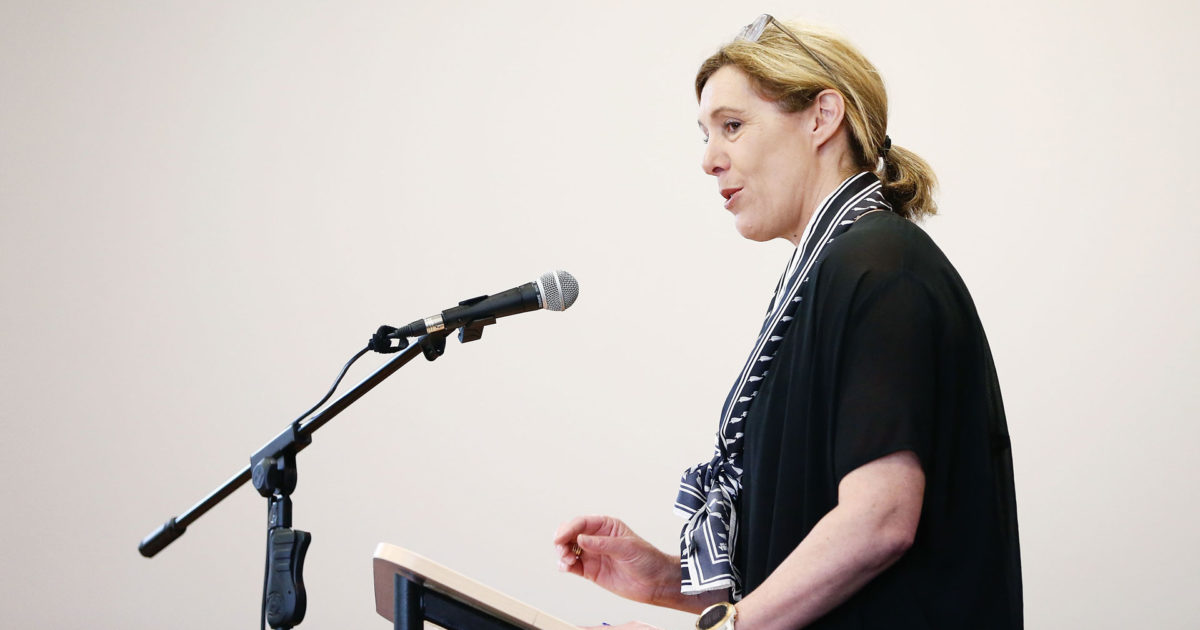New Zealand Rugby reveal the massive financial hit due to coronavirus

New Zealand Rugby has announced a $7.4 million loss for 2019 and laid bare the financial challenges facing all involved in the sport.
While the $7.4m loss represents a 37 per cent improvement on budget, NZR financial officer Nicki Nicol warned of the significant impacts Covid-19 will bring.
“At New Zealand Rugby we are forecasting up to a 70 per cent decline in revenue and we’ve had to quickly adjust our cost base accordingly,” Nicol said at Thursday’s annual general meeting.
“We know this has had an impact across all areas of our game; our players, teams, competitions, programmes and partnerships with provincial unions, Super clubs and others across the industry.
“It has also had a significant impact on our people and I acknowledge the New Zealand Rugby staff. They have been so professional as we’ve navigated all aspects of these uncertain times.”
NZR also announced an “unrealised loss” of $3.9 million from the original $19.4m investment on the five per cent shares it acquired in the new broadcast deal with Sky Television.
Sky’s share price dropped from 89 to 71 cents since November 1.
As part of the agreement, NZR must hold these shares for a minimum two-year period.
The positive news for NZR is the healthy state of its cash reserves which, at December 31, registered $93 million, excluding $21 million invested in managed funds.
“This strong cash position at year end and robust application of our reserves policy has allowed some much-needed respite to support the organisation associated with the shocks of Covid-19,” Nicol said.
“This has been beneficial in a year when there has been a massive shock to our revenue and we have had to respond by quickly reducing costs across all of rugby. Everyone is playing their part.
“We must now consider a total reset as we look to rebuild the sport in a financially sustainable way.
“The year in review does feel a little academic now, though, as we stand and assess the impact of Covid-19 on both New Zealand Rugby and rugby in New Zealand.”
NZR announced $187 million in revenue for 2019, one per cent down on the previous year but a 40 per cent growth on the previous Rugby World Cup year in 2015.
Broadcasting revenue declined 20 per cent and match day revenue dropped 40 per cent as a result of shorted international programmes in a World Cup year.
This was offset by $20m in compensation from World Rugby as part of the tier one union funding model for the truncated Rugby Championship.
NZR also made $9m foreign exchange gains and announced seven per cent growth in sponsorship and licensing which contributed to 39 per cent of overall revenue.
In 2019 NZ Rugby invested $195m into rugby in New Zealand. International and domestic competitions, the players and teams, accounted for the largest share at just over three-quarters of that expenditure.
Nicol concluded by acknowledging the stress the global pandemic is having on all areas of rugby – from provincial unions to Super Rugby clubs and the grassroots game.
“We note the significant financial impact Covid-19 on your own organisations and wish to thank you for the spirit in which and partnership approach as we work to put rugby ahead of self-interest in these challenging times.
“As we look ahead with some hopeful anticipation in the second half of 2020 we also recognise the recovery and growth of rugby in New Zealand will be different.
“Change is inevitable and the rebuild will create and opportunity for us all to co-design a rugby system that is more sustainable and captures some of the insights from the Review of Rugby held earlier this year.
“We need to rebuild financial resilience and this will ensure we can all be part of the long term success of rugby in New Zealand.”
For 2019, NZR gave itself a mark of 73.5 out of 100 for the year. The low score was attributed to 20 marks missed for failing to reach the Rugby World Cup final.
Steve Hansen is (probably quite rightly) never going to let this one go. #allblacks #lionsrugbyhttps://t.co/oXwHosp3U0
— RugbyPass (@RugbyPass) April 30, 2020
NZR has, meanwhile, made three changes to its board.
Vastly experienced senior executive Jennifer Kerr and Left Field Live sports agency chief executive Bart Campbell were confirmed, while Pango Productions founder and East Coast rugby president Bailey Mackey was promoted. Former All Blacks captain Ian Kirkpatrick was also elected as patron.
Kerr becomes the second woman to be appointed to the NZR board, joining Dr Farah Palmer at the top table. Her presence still leaves rugby short of the government target of satisfying a minimum of 40 percent of each gender on National Sports Organisation boards.
NZR chairman Brent Impey said the new board were guiding NZR into uncharted waters in the wake of Covid-19 but stressed there was also a rare opportunity to rebuild and reshape rugby.
“We face significant challenges, but many are not new with continued demand for our players overseas, the need to stay relevant to young people and adapt to fast moving technologies,” Impey said.
“We now have an opportunity to take stock and I am confident that if the dedicated and passionate people involved in rugby commit to working together in 2020 and beyond, we have the ability to ensure our sport thrives into the future.”









































